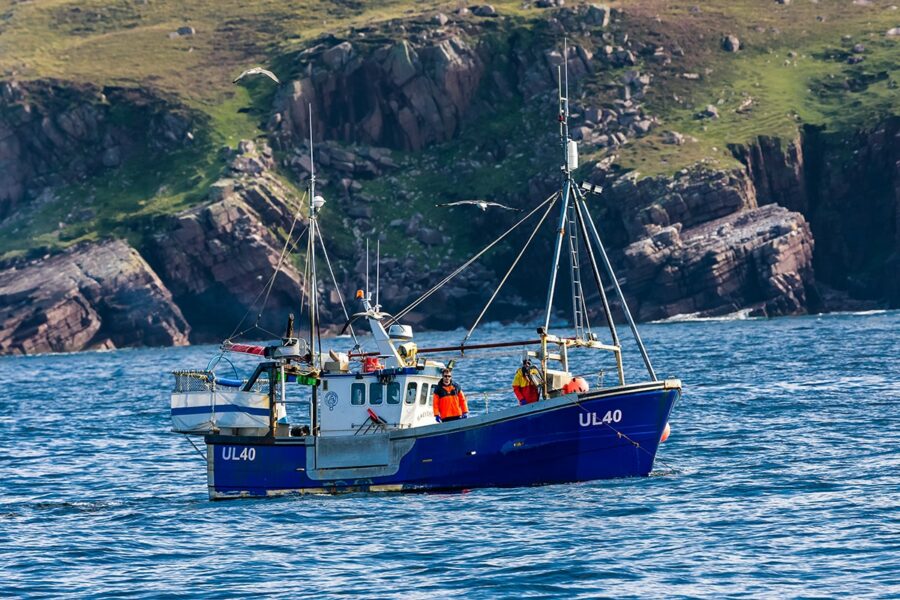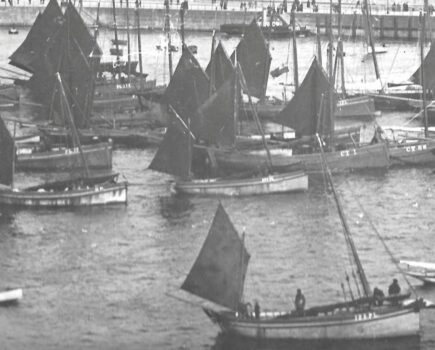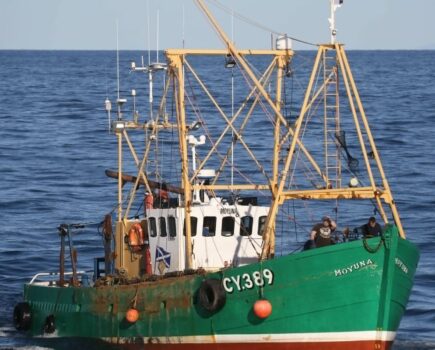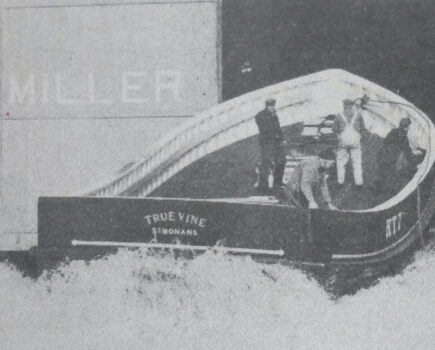Last month, Tony Tomlinson, chairman of the Association of IFCAs, gave the following speech at a national policy forum about the growing number of issues that IFCAs are being tasked with, without a corresponding increase in resources. The conference bought together civil servants, parliamentarians and industry representatives from across the UK, and provided an opportunity to stress to policy-makers the pressures that IFCAs face, as well as to acknowledge their changing role
Inshore fisheries and conservation authorities, commonly known as IFCAs, are committees of local government.
There are 10 IFCAs in England, and they manage the inshore waters out to 6nm from territorial baselines.
The committee members of IFCAs are appointed for their skills, knowledge and experience of marine fisheries, marine sciences and the local environment. In addition, the local authorities that majority-fund the IFCAs are represented by councillors, and they provide democratic accountability and an all-important link to the local community.
For over 140 years, local authorities have had a key role in inshore fisheries management. The origins of this system of management can be traced to the recognition that the inshore areas need protection to ensure that smaller-scale inshore fisheries and coastal communities have protection from over-exploitation by more industrialised fisheries, and that local decision bodies and the coastal communities are best placed to make such decisions – and these principles still hold true.
The reforms that modernised inshore fisheries management and created the IFCAs in 2011 conferred responsibilities on these committees to:
a) Seek to ensure that the exploitation of sea fisheries resources is carried out in a sustainable way
b) Seek to balance the social and economic benefits of exploiting the sea fisheries resources of the district with the need to protect the marine environment
c) Make a contribution to the achievement of sustainable development
d) Seek to balance the differing needs of persons engaged in the exploitation of sea fisheries resources in the district.
The 6nm zone has, within the Common Fisheries Policy, been reserved for the domestic fisheries access and managed accordingly. England has been able to take unilateral decisions within that area, so long as those decisions were compatible with the CFP.
This has led to the development of a system of world-leading inshore fisheries management. Today we have some of the most sophisticated and developed systems of management anywhere in the world, and this is delivered in an ‘evidence- led’, open and transparent system of local governance.
I should say at this point that in contrast to many comparable economies, we do retain a large inshore fishing fleet, and that technological advances have significantly increased the efficiency of many fishing operations.
Of course, the systems of inshore management are not without significant challenges. Competing demands, from differing perspectives and industries, make this a highly contentious space, and it is also recognised that recreational fishing, the majority of which takes place in inshore waters, brings multiple benefits and is significant for the local economy.

Tony Tomlinson MBE, chairman of the Association of IFCAs and of Cornwall IFCA.
Social changes in our coastal towns and cities have increased the competition for space, and transformed traditional fishing villages and industries, and this in turn has changed the economic operating conditions.
An increased understanding of the importance and fragility of our coastal habitats has seen their importance recognised and better managed and protected; in the last 10 years, the UK has implemented a Marine Protected Area (MPA) network which covers over 56% of the inshore zone. IFCAs played a major role in establishing, managing and enforcing these zones – despite decreased government funding in real terms to the levels of funding needed to carry out these tasks!
The preoccupation of the EU fisheries management system with EU shared stocks, and their corresponding TACs and quotas, and the orientation of the national domestic fisheries management regime to these stocks, has left significant gaps in the management outside of 6nm for many of the key species that the inshore fleet relies upon – not least the shellfisheries.
The UK’s withdrawal from the CFP and the development of the system of domestic fisheries policy brings these issues into focus, and with it many opportunities to improve systems of management.
The work of the IFCAs, in isolation, for many stocks that move across boundaries, in the absence of corresponding measures outside of inshore waters, has left many of the most important fisheries without adequate management systems – often, even the basics of stock assessments. This has resulted in inequities, whereby some of the most sustainable and well-managed inshore fisheries do not receive the full benefits of that management, as they do not receive the dividends, and the benefits of good management are not accrued locally.
Furthermore, and in some ways ironically, the UK’s system of MPA management inshore is the best in Europe; ironically, perhaps, because it is predicated in a large part in the transposing of European laws. Yet outside of the English inshore waters there have been structural barriers to applying these laws, and today the inshore fleets are – many would argue rightly – subjected to MPA management, whilst we still see the supertrawlers fishing our offshore MPAs. This clearly needs to be more equitable.
The new Fisheries Act provides the opportunities to rectify some of these inequalities, and it is essential that we ensure that IFCAs are fully enabled to engage in the developing domestic fisheries policy frameworks; that inshore fisheries, in all their forms, are fully recognised and valued in those processes; and that we learn the lessons from the past – that smaller-scale inshore fisheries, in all their forms, and coastal communities need protection from fisheries overexploitation elsewhere, and that local decision- making bodies and the coastal community are best placed to make such decisions.
It is the firm view of the Association of IFCAs that the IFCAs model is central to the further reform of fisheries management in England, and that an evidence-led system that fully recognises and rewards access to fisheries that deliver social, environmental and economic benefits to coastal communities must emerge from the developing fisheries management plans.
We stand ready and fully committed to implement that vision.
This story was taken from the latest issue of Fishing News. For more up-to-date and in-depth reports on the UK and Irish commercial fishing sector, subscribe to Fishing News here or buy the latest single issue for just £3.30 here.








